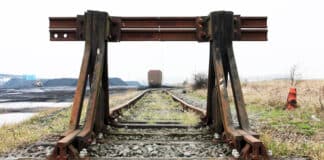10.26.2017
Falling-back is not failure, not even with CAT
By Jim Toes
In the military, falling-back happens all the time and for good reasons – none of which equate to quitting or failure. Rather, falling-back is viewed as a sound response to a dangerous situation and as a means to achieving victory. Don’t believe me? Well, listen to one of STA’s favorite decorated war heroes, Jason Redman who, among his many achievements, speaks before business leaders on strategies that work well on both the battlefield and in business. Distinguishing between falling-back and quitting or failure is one such lesson. As Jason points out, falling-back provides an opportunity to reevaluate a situation, to regroup into a more powerful force and then finally, reengage from a position of strength.
Unfortunately, our industry doesn’t do falling-back well. We tend to deploy a pendulum strategy that takes something to the point where it breaks, we then pivot and go twice as fast to the other apex only to break something else. This pendulum reality can be found in our individual behavior; our firms, as seen by countless instances of talented people promoted to points of failure only to be let go; and in our regulatory reporting regimes that throttle between too much and too little. Yes, we as an industry don’t do falling-back well.
On November 15, 2016 and after more than four years of dialogue with the industry, the SEC approved the highly anticipated Consolidated Audit Trail National Market System Plan better known as CAT. This pinnacle moment set in motion a series of deadlines for building and implementing what will be the largest data warehouse in the financial services industry. Phase #1, which calls for the SROs to begin submitting required data to the CAT is weeks away and Phase #2 is November 2018 when most broker-dealers will have to begin reporting. Technical specifications detailing how and what the industry needs to report are being delivered to market participants and multiple industry efforts are in place to assist in the implementation of CAT. We are at that point where the metaphorical ‘devil is in the details’ is fully exposed.
Concerns on CAT’s implementation plan are many, with some calling for a major scale back on its scope and others seeking time delays coupled with a more phased-in approach. Adding complexity to the already stressful environment under which the industry is operating, are the ever-increasing reports of cyber-attacks. STA, along with other industry groups believe there are problems with the current implementation plan and a solution needs to be more robust than requesting extensions to existing deadlines. We need the military equivalent of a fall-back strategy and now is the time to do it.
The selection of Thesys CAT to build the CAT was another pinnacle moment that occurred in January 2017. This decision, by definition surprised the industry as FINRA was the expected winner. Regardless of whether you think Thesys CAT is the right or wrong choice, the decision has been made and having this clarity affords the industry an opportunity to revisit the implementation plan without risking that CAT never gets built. Thesys CAT now owns this project and as such, has accountability and an economic interest in seeing CAT gets built. These factors place a stronger foundation under CAT that can withstand a temporary fall-back that has benefits as well. To be clear, STA is not advocating CAT never be built. We are saying that at this junction falling-back is a better next step because moving forward is too dangerous and doing it now, will allow us to reevaluate, regroup and reengage from a position of strength.
Thank you, Jason.
Jason Redman
JR Overcome Show
Episode #2




